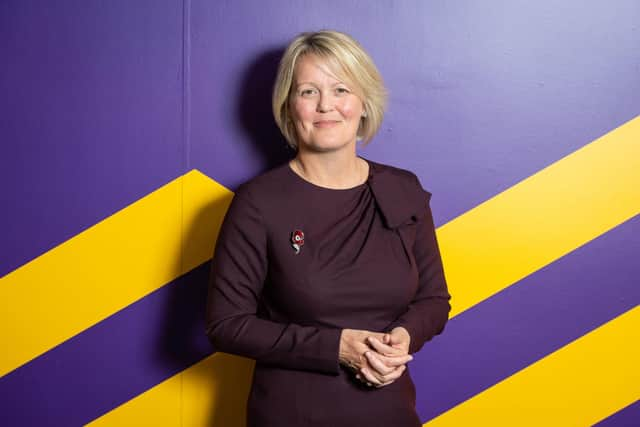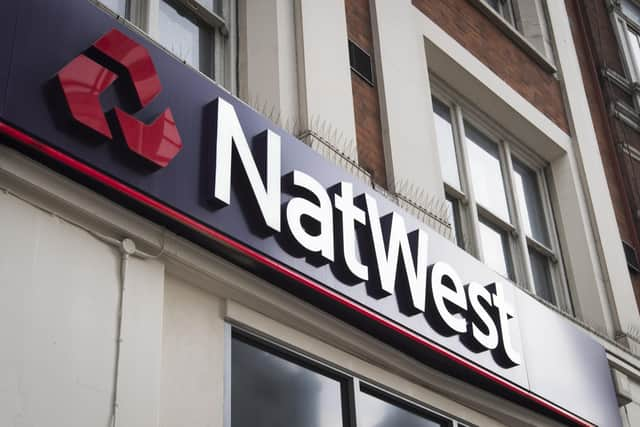Alison Rose: NatWest CEO resignation to cause 'ripples for months' as shares slide 4%
In a statement released somewhat dramatically at 1.30am on Wednesday morning, Davies confirmed that Rose - the first female chief executive of a major UK bank - was stepping down. The move came just hours after the banking boss admitted that she had made a “serious error of judgment” when she discussed Nigel Farage’s relationship with Coutts - NatWest’s private banking arm - with a senior BBC journalist. Howard had initially said the board retained their “full confidence” but her position became ever more uncertain amid political pressure for her to quit, or be sacked.
In truth, amid the growing furore, Rose’s position had become untenable. This was not some junior bank teller discussing a customer’s details with a third party, but the boss of one of Britain’s biggest financial institutions breaching client confidentiality, then stalling before coming clean in a board statement and confessional released late on Tuesday afternoon.
Advertisement
Hide AdAdvertisement
Hide AdUnsurprisingly, Farage is now calling for more heads to roll, and Davies’ position is likely to be called into question given his role in overseeing governance at the bank. Former Ukip leader Farage has also called for a “cultural change” at NatWest and within the wider industry, as he promised to continue to campaign on the issue of account closures. Using typically forthright language, Farage said: “I think this culture runs deep through the entire banking industry. I think there is a massive anti-Brexit prejudice and I think the whole thing needs to change.”


NatWest, which remains almost 40 per cent owned by the taxpayer and is due to release half-year results on Friday, has clearly suffered reputational damage but the full extent of that fallout is likely to take some time to unravel. Rose was appointed as group chief executive in 2019, having joined the group on a graduate scheme more than 30 years ago, and has received praise for getting the bailed-out bank on a sounder financial footing while also championing areas such as diversity and financial inclusion.
She was well rewarded for her efforts, receiving a pay packet totalling £5.25 million last year, with the CEO pocketing an annual bonus for the first time since the bank’s bailout by the UK Government during the 2008 financial crisis. Questions will now be raised over the extent of any payoff following her resignation.
NatWest has been quick to provide some continuity at the top, announcing that Paul Thwaite, chief executive of the group’s commercial and institutional business, will take over Rose’s responsibilities for an initial period of 12 months, pending regulatory approval.
The board said in a statement that a further process to appoint a permanent successor will take place “in due course”. Thwaite will be seen as a safe pair of hands but the group’s long-term commitment to Edinburgh and Scotland’s financial sector is sure to become a key focus, given its strong Scottish heritage.


The group faced a backlash from some quarters in 2020 when it changed its parent company name from Royal Bank of Scotland to NatWest Group. It stressed at the time that there would be no change to its customer-facing brands, with branches in Scotland continuing to operate under the Royal Bank of Scotland banner.
Stock market reaction to the change at the top saw NatWest shares fall by as much as 4 per cent in trading on Wednesday.
Danni Hewson, head of financial analysis at investment platform AJ Bell, said Rose’s departure would be a loss to the bank and predicted that the fallout could last for some time. She said: “Banks play a crucial role in making the country tick. They are trusted with our hard-earned cash and relied upon to fund a myriad of purchases from buying a house to business expansion which delivers jobs and prosperity. With that in mind it now seems absurd that the board of NatWest had considered that Alison Rose could ride out this storm.
Advertisement
Hide AdAdvertisement
Hide Ad"Despite a stellar performance as the first woman to take the helm of a UK bank, her mistake in discussing sensitive customer details with a journalist broke a sacred trust with the British public and her decision to step down was the only viable path.
“She will be a loss, having worked her way up the ranks and championed diversity and inclusion in the sector with a huge focus on getting more women in financial services. But NatWest is no ordinary bank, it is still almost 40 per cent owned by the UK taxpayer, and the political and regulatory ramifications of this episode are likely to ripple out for months to come.”
Gary Greenwood, a banking analyst at brokerage Shore Capital, said the whole affair could weigh on the share price in the short term.
He noted: “The initial response of the board was to acknowledge the wrongdoing but to give Rose their backing on the basis that she was an ‘outstanding leader’. However, it would now seem that Rose’s position had simply become untenable.
"Overall, this is a very sad end to what had up to now been a productive period of leadership for Rose, during which the operational and financial performance of the group had significantly improved, albeit with the more recent help from a tailwind of rising interest rates. Fundamentally, we think NatWest remains an undervalued stock, which is reflected in our current ‘buy’ stance, but this situation is likely to cast a shadow over share price performance in the near-term.”
Steve Clayton, head of equity funds at Hargreaves Lansdown, added: “Rose had spent her entire career at NatWest and was a highly regarded banker. The market expressed its disappointment at the loss of a talented leader.”
Comments
Want to join the conversation? Please or to comment on this article.